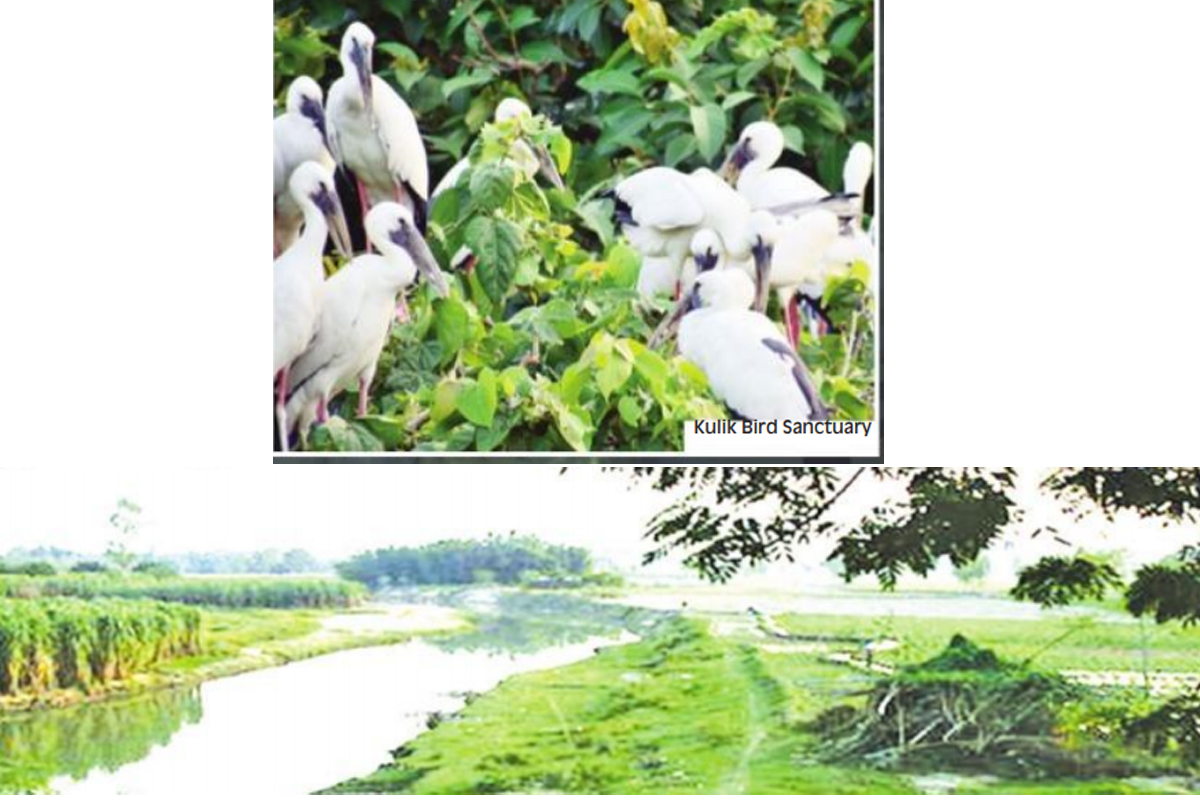Boy dragged into river by crocodile
A crocodile dragged away a minor boy from the banks of a river near his home. The incident occurred in Gobardhanpur, Patharpratima in South 24-Parganas.
A Raigunj-based environmental set-up has rolled out a campaign called ‘Kulik Bachao’ to prevent the destruction of a 67-km-long waterbody.

Photo: SNS
An environmental outfit based in Raigunj has taken great strides to save River Kulik, which is on the brink of destruction. The river forms the lifeline of the second largest avian sanctuary in Asia: the Kulik Bird Sanctuary. The organisation, called Himalayan Mountaineers’ and Trekkers’ Association, is well-known in the region and came into existence in 1985. The project themed “Kulik Bachao” was rolled out in 2014 and has been the single-handed endeavor of the organisation.
Kaushik Bhattacharya, president, Himalayan Mountaineers’ and Trekkers’ Association, said, “River Kulik cuts through the Kulik Bird Sanctuary and has its origins in a wetland known as Thakurgaon on the other side of the border. In India, it begins from Mahisa hamlet in Hemtabad block in Uttar Dinajpur. The sanctuary is at a distance of around 1 km from Raigunj on National Highway No 34. The length of river Kulik in India is around 67 km.”
The environmental set-up makes efforts to generate mass awareness through its campaigns. Bhattacharya said, “We host awareness campaigns right from Mahisa to Dindol and even in Abdulghata, Bandar, Gorahar and Itahar. We have doled out Rs 50,000 to organise these campaigns and our project will end in 2021.”
Advertisement
The sanctuary solely depends on river Kulik. Hence, if the river ceases to exist, the sanctuary and the avian life in its periphery will be in danger. Bhattacharya said, “We have appealed for river dredging and the Kamlabari Municipality in Uttar Dinajpur district has taken up the task of carrying it out at Abdulghat. There was a time when the domestic waste of Raigunj was discharged into the river, but now the Raigunj Municipality has built a boundary wall at Bandar to prevent polluting the river.” Raigunj procures large quantities of fish from Andhra Pradesh. “The packaging material of fish used to be discharged in river Kulik in the vicinity of the sanctuary, but now this has become a thing of the past. At the same time, the state government needs to step in to safeguard the river from extinction,” Bhattacharya added.
Advertisement